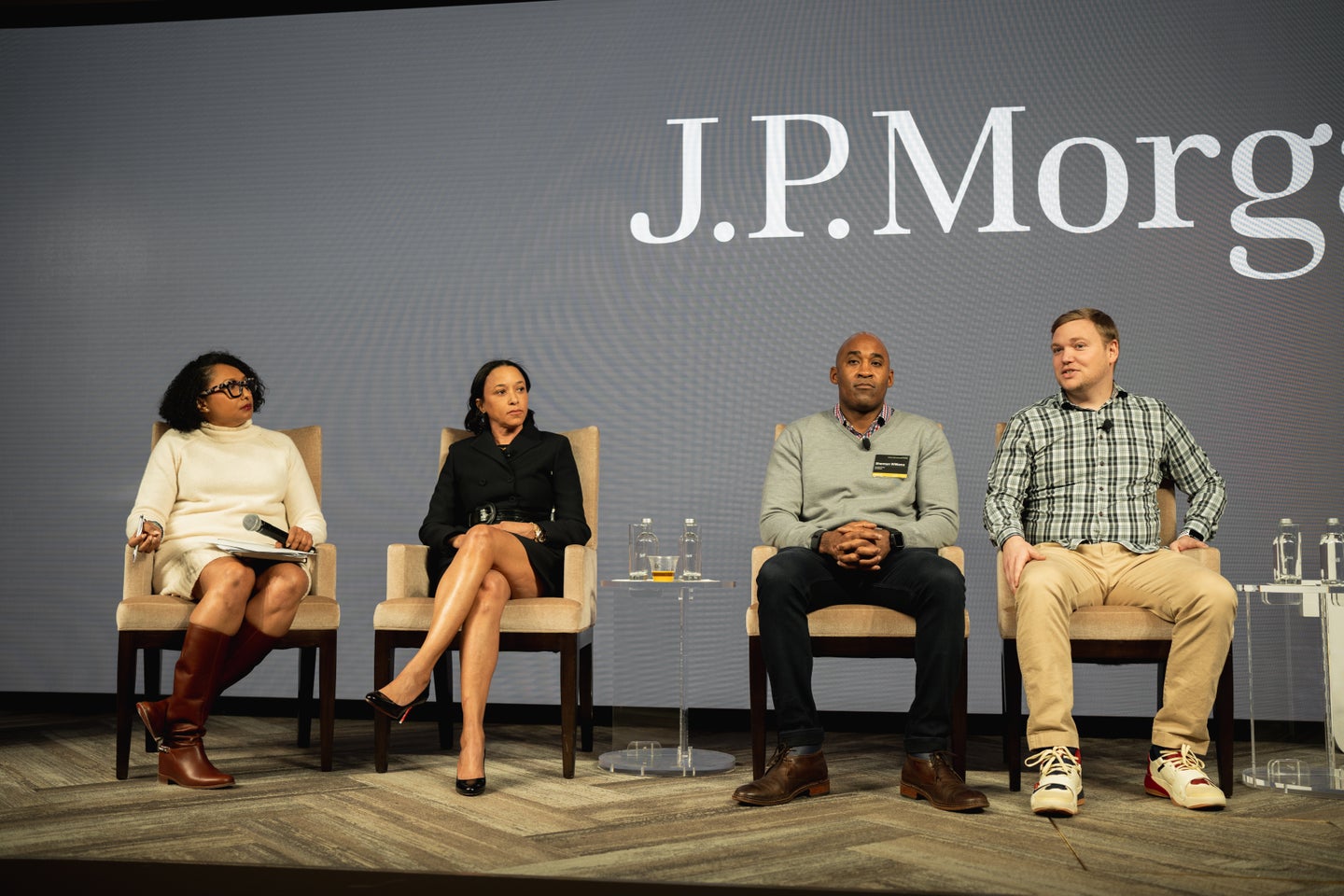If you want outsized returns, reject ‘pattern recognition'
Jan 31, 2023

By Kimberly Smith, Chief Capital Formation Officer at Techstars
“In evaluating companies, the successful VC will often see something that reminds them of patterns they’ve seen before.”
- Bruce Dunlevie, General Partner at Benchmark.
We recently introduced the first 59 companies from the Techstars Advancing Cities Fund to over 100 VCs and angels at our joint investor summit with J.P. Morgan in New York.
One of the talking points to emerge from the event was the pervasive and often malign influence of ‘pattern recognition’ on venture investing. This is where VCs back startups based on a particular technology, niche sector, business model, or type of entrepreneur (or combination of these) that has proven successful in the past. It’s less about precisely replicating your greatest hits as an investor – although that sometimes happens – and more about spotting patterns and similarities.
My first reaction when I hear people mention pattern recognition is usually: yes, but would you learn to walk by walking backwards?
If you invest based on the performance of past investments then frankly you are not investing in the future. On the contrary, you are entrenching the status quo and narrowing your field of vision. Past performance is absolutely not indicative of future results – otherwise every investor would be a billionaire. To deliver outsized returns and create alpha, patterns need to be broken and remade.
From jail to startup.
Our Advancing Cities fund zeroes-in on founders who are – by definition – breaking the mold by going after problems they, and many millions like them, encounter, but the mainstream doesn’t experience.
But because they hail from traditionally overlooked backgrounds, these individuals hadn’t historically been considered investable.
Take the example of my co-panellist at our joint investor event, Harley Blakeman, founder of Techstars portfolio company Honest Jobs. Harley was a homeless teenager “bouncing from couch to couch”, as he puts it, who had dropped out of school and was eventually arrested for selling drugs.
Being sentenced to 14 months in prison, however, proved the making of him. While incarcerated, he earned his GED and became an avid reader before going on to graduate from The Ohio State University Fisher College of Business.
Yet landing a job with a prison record proved another matter. Harley interviewed with almost 100 companies before he was hired by a manufacturing business that was willing to give him a shot. He was promoted quickly, and eventually (in 2018) left to set up Honest Jobs to help people with criminal records into employment, and connect employers with untapped talent. It’s been highly successful, attracting $3M in VC investment, and generating over $1M in revenue.
On average it takes people with felony convictions over eight months to find a job, which cumulatively costs the U.S. economy an estimated $327B a year in lost earnings, Harley informed us. “That’s an overlooked opportunity that represents a massive potential return. [Today] we help dozens of Fortune 1000 companies hire from this population. They're finding more diverse talent, more loyal talent, and it's actually helping their businesses’ bottom line.”
Also on the panel was Sherman Williams, Managing Partner at AIN Ventures and a Techstars mentor and Entrepreneur in Residence (EIR). Sherman argued that to achieve alpha as an investor, you can’t just go with the pack – like Harley, you have to do something different.
“It could be geography, the sector, the race or life experience of the person that can give you a leg up in the market,” he said.
Harley’s life experience led to an insight which enabled him to find a deep and persistent problem to address: wasted talent. “The effect of discrimination that those people are facing is only creating opportunities for people that are willing to invest in that space,” said Sherman.
Smart investors on the hunt for outsized returns are always looking for an edge. We want to be the first person through the door. The first to unearth the diamond in the rough.
You do that by exploring away from the beaten track. Not by looking over your shoulder. Or searching for patterns in the past.
